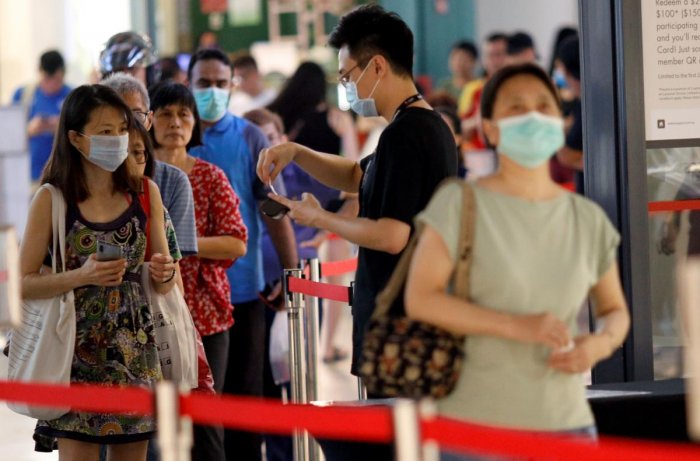

Repeated rounds of social distancing needed until 2022: Harvard study

Repeated periods of social distancing might be required till 2022 to halt the novel coronavirus, a recent study by Harvard scientists who’ve been following the pandemic closely, shows.
The Harvard team’s computer simulation, which was published in a paper in the journal Science, assumed that COVID-19 will become seasonal. The lead author of the study, Stephen Kissler said that one-time social distancing measures are likely to be insufficient to maintain the incidence of SARS-CoV-2 within the limits of critical care capacity in the United States.
Widespread viral testing would be required in order to determine when the thresholds to re-trigger distancing have been crossed, said the authors.
Related news | US registers record 2,129 COVID-19 deaths in 24 hrs; total crosses 25,000
The duration and intensity of lockdowns can be relaxed as treatments and vaccines become available. But in their absence, on and then off distancing would give hospitals time to increase critical care capacity to cater for the surge in cases that would occur when the measures are eased.
“By permitting periods of transmission that reach higher prevalence than otherwise would be possible, they allow an accelerated acquisition of herd immunity,” said co-author Marc Lipsitch.
Conversely, too much social distancing without respite can be a bad thing. Under one modeled scenario “the social distancing was so effective that virtually no population immunity is built,” the paper said, hence the need for an intermittent approach.
The authors acknowledged a major drawback in their model is how little we currently know about how strong a previously infected person’s immunity is and how long it lasts.
At present the best guesses based on closely-related coronaviruses are that it will confer some immunity, for up to about a year. There might also be some cross-protective immunity against COVID-19 if a person is infected by a common cold causing coronavirus.
Related news | Search for a COVID-19 vaccine heats up in China, US
One thing however is almost certain: the virus is here to stay. The team said it was highly unlikely that immunity will be strong enough and last long enough that COVID-19 will die out after an initial wave, as was the case with the SARS outbreak of 2002-2003.
Antibody tests that have just entered the market and look for whether a person has been previously infected will be crucial in answering these vital questions about immunity, they argued, and a vaccine remains the ultimate weapon.


